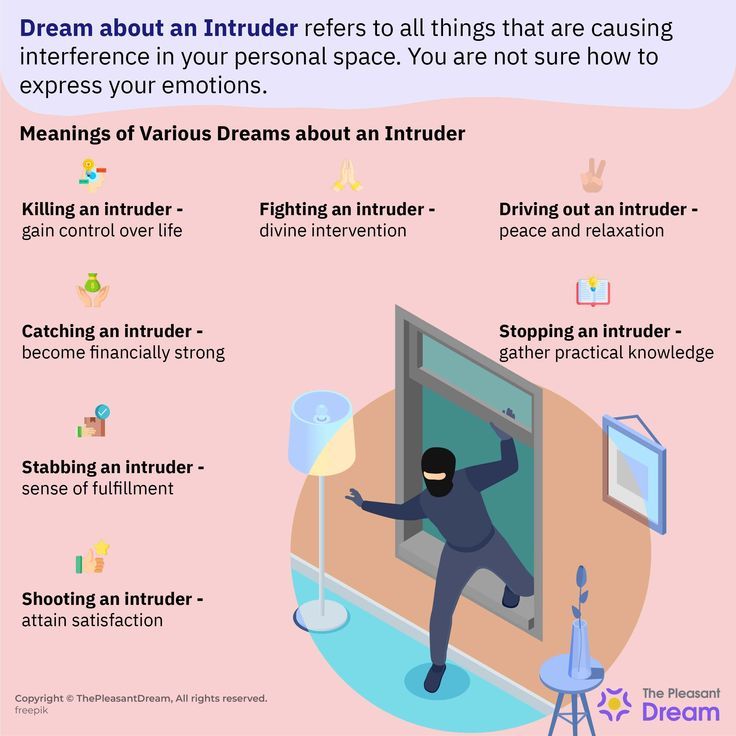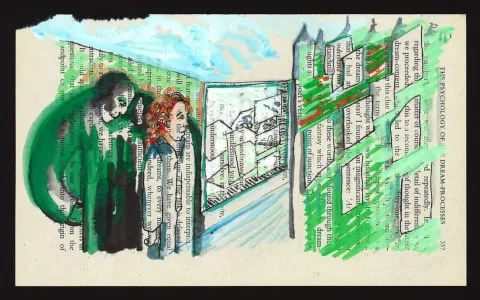Many people have experienced this strange dream: suddenly, there’s a stranger in your home. He might not do anything—just stand silently in the hallway or sit in the living room staring at you. There’s none of the exaggerated horror movie scares, yet waking up leaves you feeling uneasy, sometimes even uncomfortable all day long.
What does this dream really mean? In truth, it rarely signifies an actual “burglar on the way.” Instead, it’s more like your brain sending you a psychological signal. Next, we’ll analyze the underlying meaning of “dreaming about intruders” in an easy-to-understand way and teach you how to record and interpret your own dreams.
Why Pay Attention to Dream Details
Dreams are the “projector” of your subconscious and emotions. Though they may seem chaotic, details are often key to interpretation. When you have such an unsettling dream, resist the urge to jump out of bed. Instead, lie still and recall the dream’s scenes, trying to grasp those fragmented images.
Start by asking yourself these questions:
- What did the intruder look like?- Was it a blurry shadow, a stranger, or someone you know?
- What were they doing? – Were they standing still and staring at you, or rummaging through your belongings?
- How did you feel? – Afraid, tense, irritated, or inexplicably anxious?
- What was the surrounding environment like? – Was the room bright or dim? Was there an odd atmosphere?
For example, I once dreamt of a faceless shadow standing at my bedroom door, silent and motionless. Though it didn’t attack me, the feeling of “intrusion” was overwhelming—like someone had barged into my safest space without permission. That unease lingered long after waking.
Dream Journaling Tips: Capturing Subconscious Clues
Dreams fade quickly, so the first step in interpreting them is recording details. Treat it like a diary—jot down key elements. For instance:
- Date and time of the dream: Helps uncover connections between the dream and your waking life.
- Identity of the intruder: Stranger, acquaintance, or abstract shadow?
- Intruder’s behavior: Were they staring at you? Touching things? Or standing quietly?
- Your emotions: Fear, anger, curiosity, or indifference?
- Environmental details: Room layout, lighting, messiness, etc.
- Other unusual events: Were there strange plot elements or symbols?
By keeping long-term records, you may discover patterns. For instance, I noticed these dreams occur frequently whenever someone in real life makes me feel “forced” or “offended.” Dreams are actually your subconscious warning: someone is crossing your psychological boundaries.

Common Symbolic Meanings of Dreaming About “Intruders”
The “intruder” in your dream doesn’t necessarily represent a real-life villain; more often, it embodies your inner anxieties, pressures, or unease. Here are several common interpretations:
- Feeling Watched or Uncomfortable
This dream often symbolizes a real-life sense that someone is overly interfering in your life, or that your privacy and personal space are being violated. - Aggressive Intruder
If the intruder displays threatening or violent tendencies, this likely amplifies real-life pressures or fears you’re experiencing. You may be navigating conflicts at work, home, or in personal relationships. - The Intruder is an Acquaintance
When a familiar person invades your space in a dream, it often indicates boundary issues between you and them. Alternatively, it could reflect discomfort with a specific aspect of their personality. - The intruder ignores you
This indifference may project your real-life feelings of being “overlooked,” indicating you feel undervalued in a relationship or environment. - Home is vandalized
Dreams of a damaged house or stolen belongings reflect inner insecurity, potentially linked to financial stress, emotional turmoil, or health concerns. - Successfully Repelling Intruders
Such dreams are positive, symbolizing your subconscious recognition of your ability to handle difficulties and pressure. You possess the strength to protect yourself.
The Psychological Perspective Behind Dreams
In psychology, dreams are the language of the subconscious. Intruders often represent those “unwelcome” thoughts, emotions, or interpersonal relationships that quietly infiltrate your life.
For example:
- Chronic work stress leaves you unable to relax, so the “stranger” in your dream becomes a symbol of that pressure.
- Family or colleagues overstepping your decisions makes you subconsciously feel your “personal space” is being invaded.
- Anxiety about self-worth or secrets may manifest as “theft” in the dream plot.
These dreams remind us to pay attention to our inner boundaries and find the source of our emotions.
Practical Dream Reflection Methods
When you experience such dreams, don’t just fear or ignore them. Use them to understand your psychological state:
- Quickly Record
Write down the dream immediately upon waking, even if it’s fragmented. - Emotional Analysis
Focus on the emotions felt in the dream—they often reveal subconscious thoughts more than the dream’s content. - Seek Real-Life Clues
Ask yourself: “What in my actual life makes me feel violated or uncomfortable?” - Adjust Boundaries
Dreams of intruders usually signal a need to reset personal and emotional boundaries. - Release Emotions
If the dream leaves you highly anxious, soothe your feelings through journaling, exercise, or meditation.
Summary: Dreams Are Signals from Your Mind
Dreaming of intruders doesn’t mean burglars will actually break into your home. It’s more like your brain using imagery to alert you: someone or something in your life is encroaching on a psychological space you wish to keep untouched.
Next time you dream of strangers entering your home, instead of panicking, grab a notebook, pour yourself a cup of coffee, and calmly ask: “Lately, who or what has been unsettling me?”
This approach not only helps you understand your dreams but also sharpens your awareness of your emotions and psychological needs. Dreams are your brain’s little whispers—and you are the one who can decipher them.














